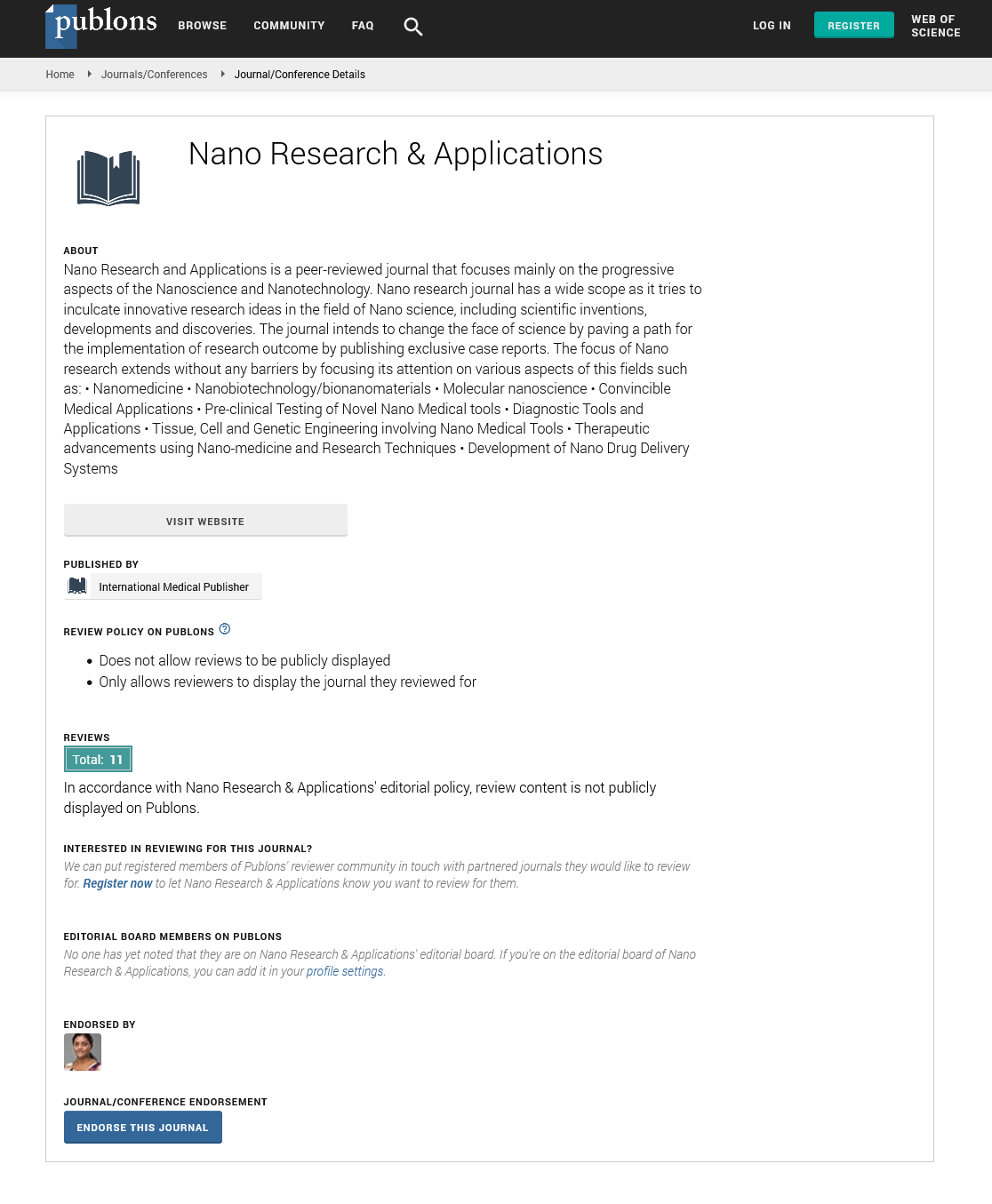ISSN : 2471-9838
Nano Research & Applications
Soft two dimensional nanomaterials at biointerfaces
EuroSciCon Conference on Nanotechnology & Smart Materials
October 04 -06 ,2018 Amsterdam , Netherlands
Mohsen Adeli and Rainer Haag
Institut fur Chemie und Biochemie, Freie Universitat Berlin, Germany Lorestan University, Iran
Keynote: Nano Res Appl
DOI: 10.21767/2471-9838-C6-023
Abstract
Rapid development in two-dimensional nanomaterials and their biomedical applications have raised fundamental questions about their biointeractions. However, any control over these interactions and practical application of the 2D devices relay on understanding their mode of action. Due to their high polydispersity and undefined structures, the mechanism of their biointeractions is a controversial topic. For a comprehensive study of these interactions and to obtain reproducible results at nanobiointerfaces, the structure of these nanomaterials and in particular their exposure should be defined. Recently, we have developed a method for a controlled functionalization of different two-dimensional nanomaterials by which we have synthesized different smart systems with well-defined functionalities, dimensions, and isoelectric points (pI). We found that cellular uptake pathways, pathogen interactions and intracellular localization of these 2D nanomaterials strongly depended on their surface charge and functionality. By manipulating these factors, we were able to tune the interactions between such nanomaterials and biosystems
Biography
Mohsen Adeli has started his independent academic carrier at Lorestan University in 2005, where he was active as an Assistant Professor in the field of Functional Carbon Nanomaterials including Carbon Nanotubes and Dendritic Polymers. He was promoted to the rank of Full Professor in Chemistry in 2013. He was invited to the Institute of Chemistry and Biochemistry at Freie Universität Berlin, Germany, as a Guest Professor within the collaborative research center (SFB) 765, in 2014. His research focuses on the Synthesis and Characterization of Functional Hybrid Nanomaterials.
E-mail: m.aadeli@fu-berlin.de
Google Scholar citation report
Citations : 387
Nano Research & Applications received 387 citations as per Google Scholar report
Nano Research & Applications peer review process verified at publons
Abstracted/Indexed in
- Google Scholar
- China National Knowledge Infrastructure (CNKI)
- Directory of Research Journal Indexing (DRJI)
- WorldCat
- Publons
- Secret Search Engine Labs
- Euro Pub
Open Access Journals
- Aquaculture & Veterinary Science
- Chemistry & Chemical Sciences
- Clinical Sciences
- Engineering
- General Science
- Genetics & Molecular Biology
- Health Care & Nursing
- Immunology & Microbiology
- Materials Science
- Mathematics & Physics
- Medical Sciences
- Neurology & Psychiatry
- Oncology & Cancer Science
- Pharmaceutical Sciences
